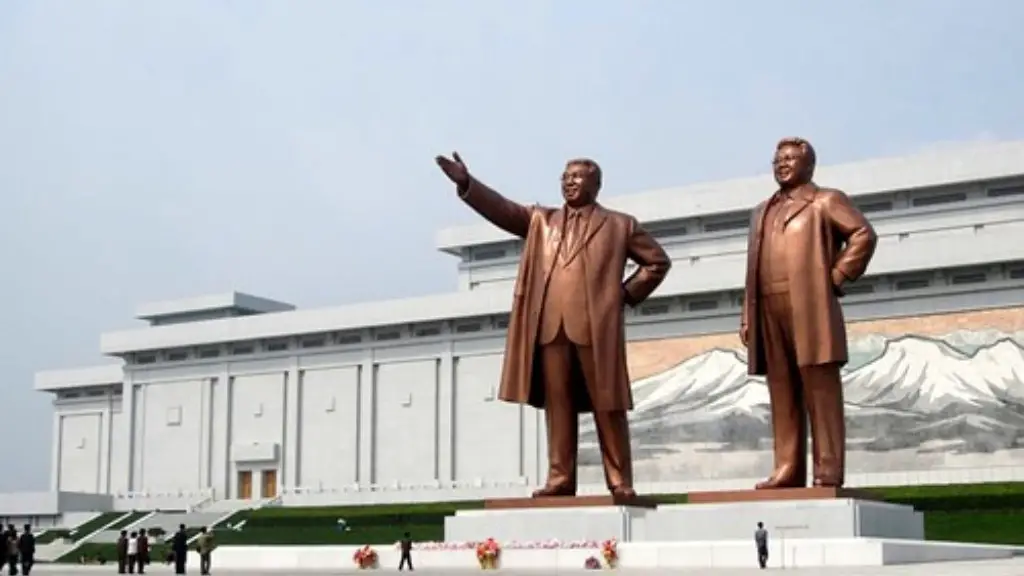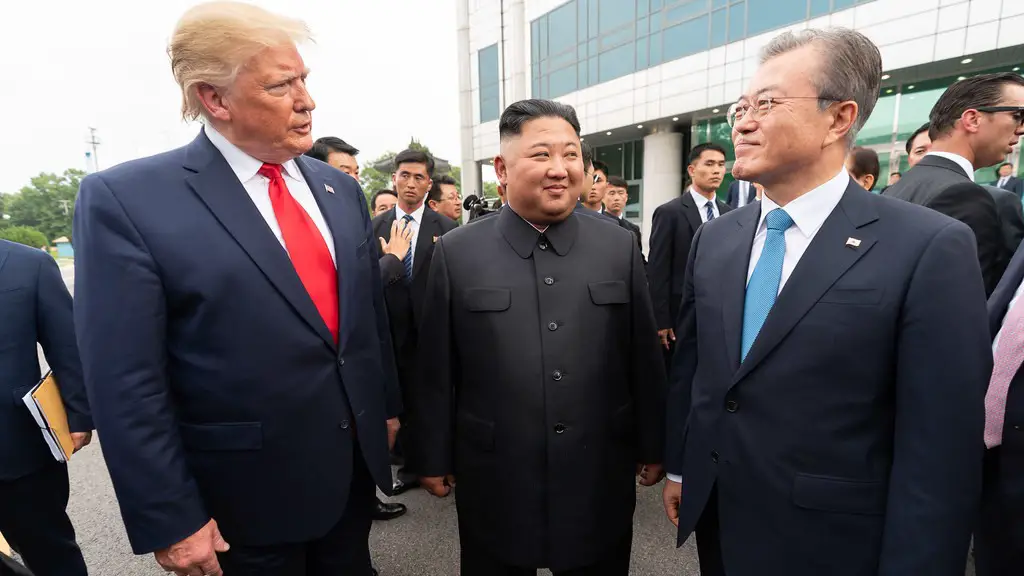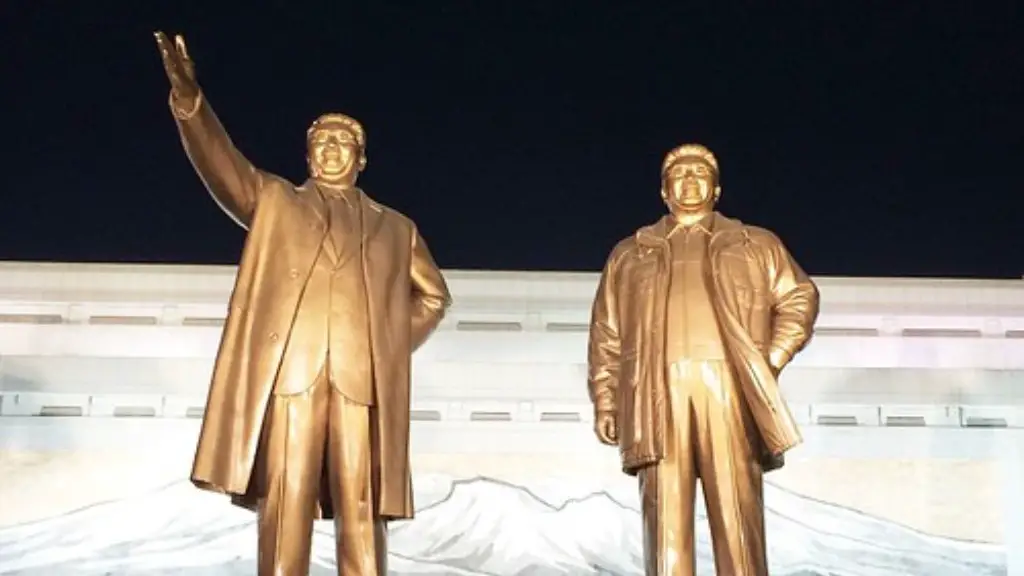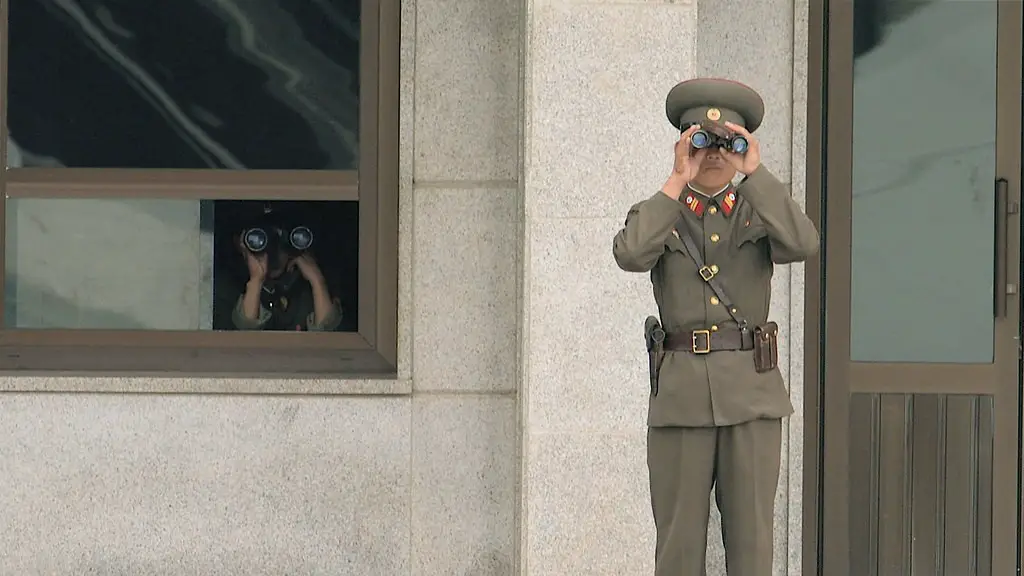Introduction
North Korea has been a source of tension and fear on the international stage since its formation in 1945. The current situation is particularly tense, as its unpredictable leader Kim Jong Un has been escalating his nuclear weapons program and threatening its neighbors with potential military action. This article will explore why North Korea has been provoking such fear among the international community and the key threats it poses.
Competing Ideologies
The rivalry between North Korea and the international community stems from two opposing ideologies. North Korea is run under a system of Stalinist authoritarianism, while the international community is largely composed of democratic countries. North Korea is also a belligerent state, while the international community is pacifistic by nature.
These opposing ideologies have caused deep rifts between North Korea and its neighbours, leading to decades of tension and suspicion.
North Korea’s Military Power
One of the reasons why North Korea provokes such fear is because of its military capabilities. North Korea has one of the largest armies in the world and is believed to possess a vast stockpile of weapons.
North Korea has also been known to commit acts of aggression against its neighbors. In 2010, it sank a South Korean navy ship, killing 46 sailors in the process. This sparked international outrage and led to even further heightened tensions.
However, the country’s military capabilities have been limited by its economic situation, meaning it would face immense challenges should it decide to mount a full-scale attack on a major power.
The Nuclear Threat
The most concerning factor in the North Korean situation is the threat of nuclear weapons. North Korea has been testing its nuclear capabilities for many years and is believed to have the capability of launching a nuclear missile. This poses a serious threat to its neighbours, particularly South Korea and Japan. It also increases the risk of nuclear escalation and of other nations developing nuclear weapons in response.
The international community has responded with sanctions in order to try to limit North Korea’s nuclear capabilities. While this has had some effect, the situation remains volatile as North Korea continues to develop its weapons program.
North Korean Media
Another factor that increases fear in North Korean is its secretive, heavily censored media. North Korean media is strictly controlled by the government and is used to promote a message of unwavering loyalty to the Kim Jong Un regime. The media is filled with images of the leader as an all-powerful figure, as well as stories of military victories and international bullies.
This has caused many people outside of North Korea to view the country with suspicion and deep mistrust, as well as contributing to Kim Jong Un’s reputation as a despotic ruler.
The Humanitarian Crisis
The repression of North Korea has created a severe humanitarian crisis in the country. Millions of North Koreans are living in poverty and without access to basic goods and services. Reports have also emerged of widespread human rights abuses, particularly against political dissidents.
The international community has responded with aid to try to alleviate the suffering, but with little success. North Korea has refused aid from the United States and its allies, preferring to remain isolated. This has caused further fear and suspicion among the international community.
International Sanctions
The international community has been responding to North Korea’s provocations by imposing increasingly stringent sanctions on the country. These are aimed at cutting North Korea off from the global economy and isolating it in order to pressure the regime to back down.
However, the sanctions have so far failed to produce any significant change in North Korea’s behaviour. The country continues to test its nuclear weapons and has stepped up its military drills. This has led to further sanctions and yet more friction between North Korea and the international community.
The Risk of War
The growing tensions between North Korea and the international community have heightened the risk of war. This is particularly concerning given North Korea’s nuclear capabilities and willingness to use force against its neighbours.
The international community has been working to contain the situation, but there are no guarantees that war can be avoided. This has led to increased fear and uncertainty as the situation in North Korea continues to remain volatile.
The Role of China
China has been playing a key role in trying to reduce tensions between North Korea and the international community. China is North Korea’s largest trading partner and has been known to use its influence to dissuade North Korea from taking aggressive action.
However, China’s influence has been waning in recent years, and it has been unable to exert enough pressure to compel North Korea to take the steps necessary to deescalate the situation. This has caused further fear and anxiety among onlookers who are concerned about the potential for conflict.
The Fear of the Unknown
Many people also fear North Korea due to the unpredictability and opacity of the regime. North Korea is known for its secrecy and its unpredictable nature, meaning it is difficult for the international community to make reliable predictions about the country’s future actions.
This inability to predict or anticipate North Korea’s behaviour has caused concern and fear among many, leading to the idea that North Korea is a wild card that could plunge the world into chaos.
U.S. Response
The United States has been at the forefront of the international condemnation of North Korea. The Trump administration has taken a particularly hardline stance, escalating sanctions and increasing pressure on North Korea.
While the United States has been clear in its condemnation of North Korea, its actions have been met with criticism by many, who argue that its approach is too confrontational. It has also caused tension with China, which is a major economic partner of North Korea.
The Potential for Peace
Despite the fear and apprehension surrounding North Korea, there is still potential for peace and reconciliation. Leaders from around the world have been working to create a diplomatic solution that could lead to the de-nuclearization of North Korea and a lasting peace in the region.
At the same time, North Korea has signaled that it is open to dialogue and cooperation with the international community. This is a step in the right direction, but much more work is needed to find a lasting solution to the North Korean crisis.
The Dark Shadow of North Korea
The fear of North Korea is still pervasive, due to its unpredictable nature and the dark shadow it casts over the region. North Korea is viewed as a rogue state that poses a significant threat to its neighbours and the global order.
At the same time, there is still hope for peace in the region and for North Korea to take a more constructive role in international affairs. The international community must continue to engage with North Korea in a positive and proactive manner in order to build a more secure and peaceful future.




